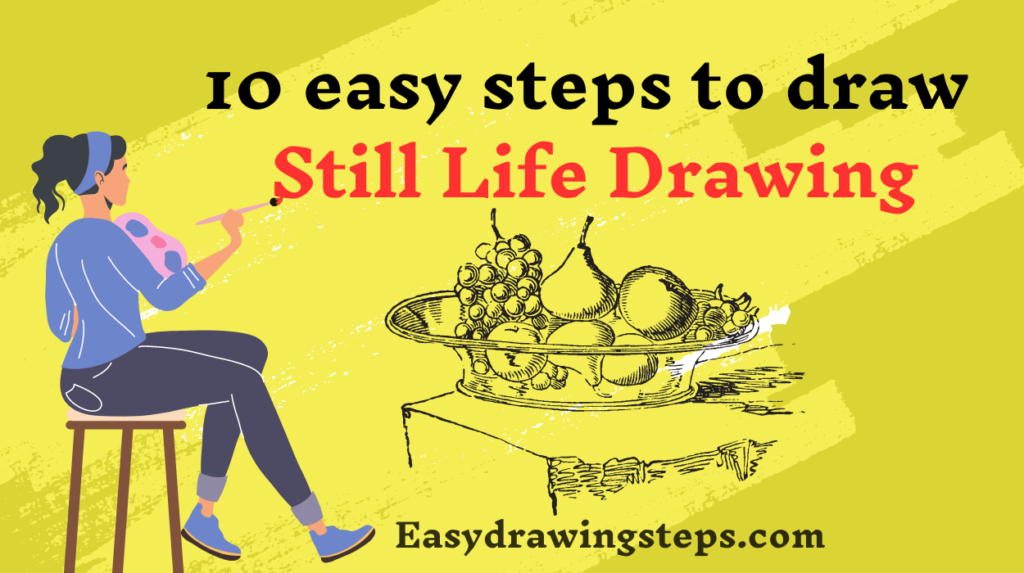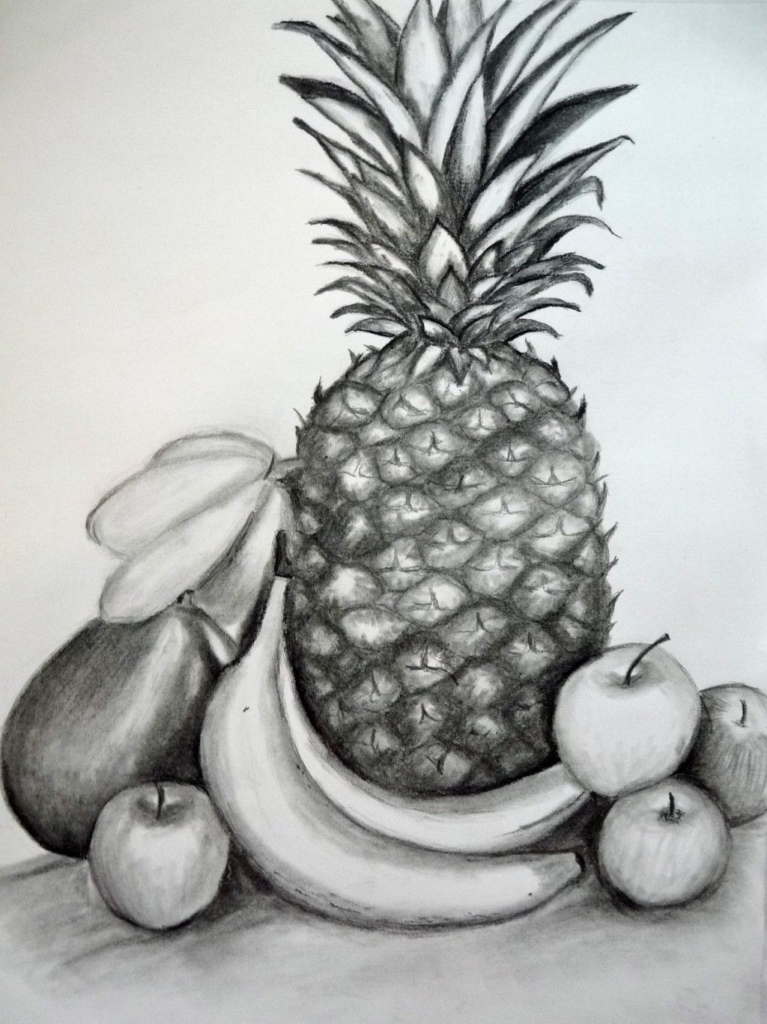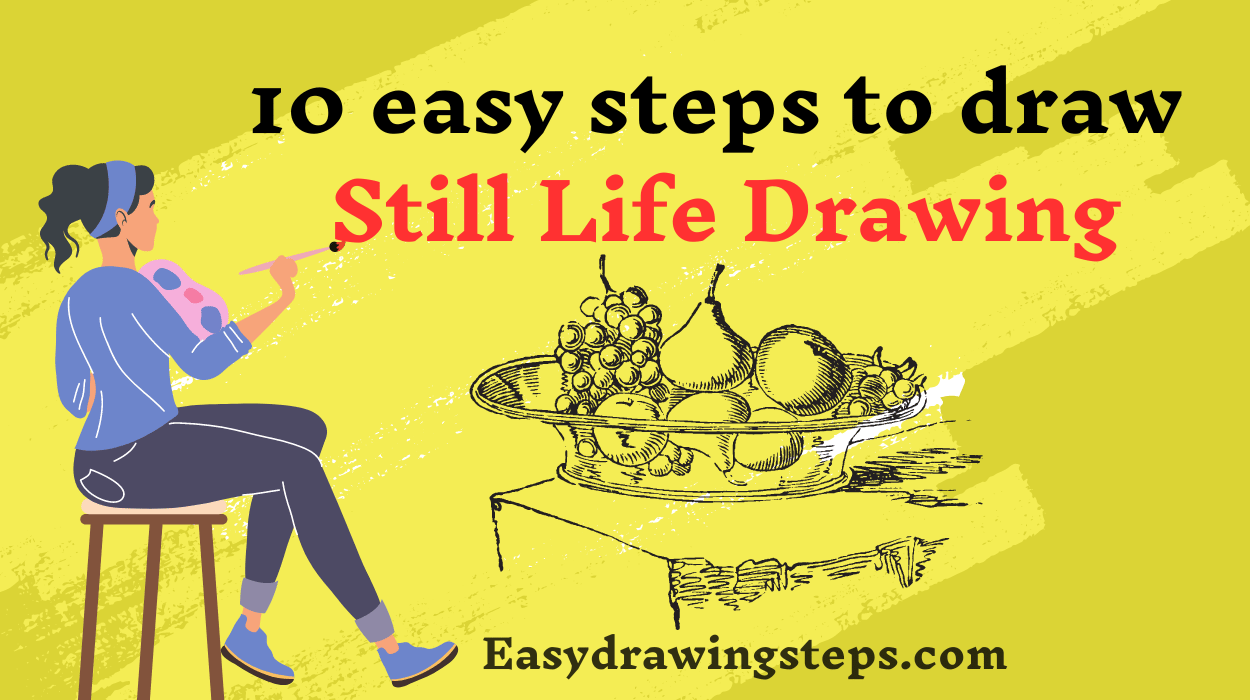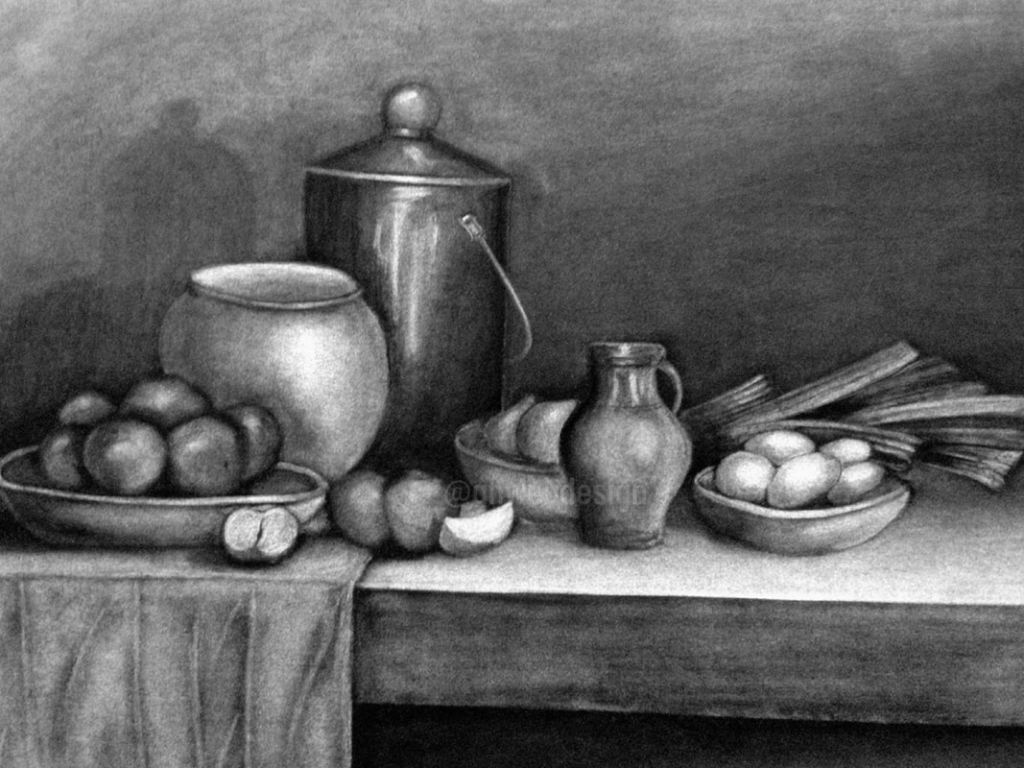
Still Life Drawing : Drawing still life is a wonderful way to develop your artistic skills and capture the beauty of everyday objects. Whether you’re a beginner or looking for simple yet effective techniques, follow these 10 easy steps to create your own charming still life drawing. Let’s dive in!
Step 1: Choose Your Objects
Select a variety of objects to include in your still life composition. Common choices include fruits, flowers, vases, books, or household items. Aim for a mix of shapes, sizes, and textures to make your drawing visually interesting.
Also Read : 10 easy steps to draw Anime Boy Drawing
Step 2: Set Up Your Composition
Arrange your chosen objects on a table or any flat surface. Experiment with different arrangements until you find one that appeals to you. Consider factors like balance, contrast, and negative space to create a compelling composition.
Step 3: Sketch the Basic Shapes
Using a pencil, lightly sketch the basic shapes of each object. Focus on capturing their overall form and proportions. Don’t worry about details at this stage; the goal is to establish the foundation of your drawing.
Also Read : 10 easy steps to draw Boy Drawing
Step 4: Add Details and Texture
Once you’re satisfied with the shapes, start adding details and texture to each object. Observe the subtle variations in texture, such as the roughness of a fruit’s skin or the smoothness of a vase. Use shading and hatching techniques to create depth and dimension.

Step 5: Pay Attention to Light and Shadow
Observe the light source in your setup and identify areas of light and shadow. Use shading to indicate the cast shadows and the areas of objects that are in shadow. This step adds realism and depth to your still life drawing.
Also Read : 10 easy steps to draw Tanjiro Drawing
Step 6: Refine Your Drawing
Take your time to refine the details of each object. Pay close attention to proportions, perspective, and symmetry. Use your eraser to make corrections as needed and ensure that your drawing accurately represents the objects in your composition.
Step 7: Focus on Negative Space
Pay attention to the negative space surrounding your objects. Negative space refers to the area around and between the objects in your composition. By carefully observing and drawing the negative space, you can enhance the overall balance and harmony of your drawing.
Also Read : 10 easy steps to draw Cat Drawing
Step 8: Add Finishing Touches
Once you’re satisfied with the main elements of your drawing, add any additional details or embellishments. This could include highlights, reflections, or small decorative elements on the objects. These finishing touches will bring your still life drawing to life.
Step 9: Evaluate and Adjust
Take a step back and evaluate your drawing as a whole. Look for areas that may need further refinement or adjustments. Pay attention to the overall composition, proportions, and balance of light and shadow.
Also Read : 10 Easy Steps to Draw Penguin Drawing
Step 10: Finalize Your Drawing
Once you’re happy with your drawing, finalize it by darkening the lines and adding any final touches. Sign your name in the corner to complete your artwork. Congratulations, you’ve created your own beautiful still life drawing!
Easy Cute Still Life Drawing
For an easy yet cute still life drawing, choose simple objects with charming details. Focus on capturing the essence of each object and use soft, rounded lines to enhance their cuteness. Add cheerful colors and playful touches to bring your drawing to life.
Pencil Still Life Drawing
Using a pencil allows for versatility and precision in your still life drawing. Start with light, sketchy lines to establish the basic shapes, then gradually add darker lines and shading to add depth and realism. Experiment with different pencil grades to achieve varying levels of darkness and texture.
Beginner Still Life Drawing
If you’re new to drawing, still life is an excellent place to start. Begin with basic objects and simple compositions, and gradually challenge yourself with more complex arrangements. Focus on fundamental drawing techniques such as observation, proportion, and shading to build your skills over time.
Easy Beginner Still Life Drawing
For an easy beginner still life drawing, start with a few large, simple objects arranged on a plain background. Use basic shapes and minimal details to keep it manageable. Focus on capturing the overall forms and proportions accurately, and don’t be afraid to experiment with different techniques.
Still Life Drawing Easy
To make still life drawing easy, break down the process into manageable steps. Start by sketching the basic shapes and gradually add details, texture, and shading. Take your time and enjoy the process of observing and capturing the beauty of everyday objects.
Realistic Still Life Drawing
For a realistic still life drawing, focus on careful observation and attention to detail. Study the objects closely, paying attention to their form, texture, and subtle nuances of light and shadow. Use precise lines and shading techniques to create a lifelike representation of your subject matter.
Drawing still life is a rewarding artistic practice that allows you to hone your observational skills and express your creativity. Whether you’re aiming for simplicity or realism, these 10 steps will guide you through the process of creating your own captivating still life drawing. Happy drawing!
FAQ
What is still life drawing, and why is it important?
Still life drawing depicts inanimate objects arranged in a composition. It’s important for practicing observation, composition, and rendering skills, and allows for experimentation with materials and techniques.
How do you choose objects for a still life composition?
Choose objects based on shape, size, texture, and color. Aim for variety and visual interest, experimenting with different arrangements until you find one that appeals to you.
What are some essential techniques for drawing still life?
Essential techniques include sketching to establish shapes, observing details and textures, shading for depth, and thoughtful composition.
How can an artist create depth and realism in a still life drawing?
Create depth and realism by using perspective, value, detail, and atmospheric perspective techniques to give objects volume, form, and the illusion of distance.
What are common mistakes to avoid when drawing still life?
Avoiding mistakes such as incorrect proportions, overworking, neglecting negative space, flatness, and lack of variety will help improve still life drawings.



2 thoughts on “10 easy steps to draw Still Life Drawing”